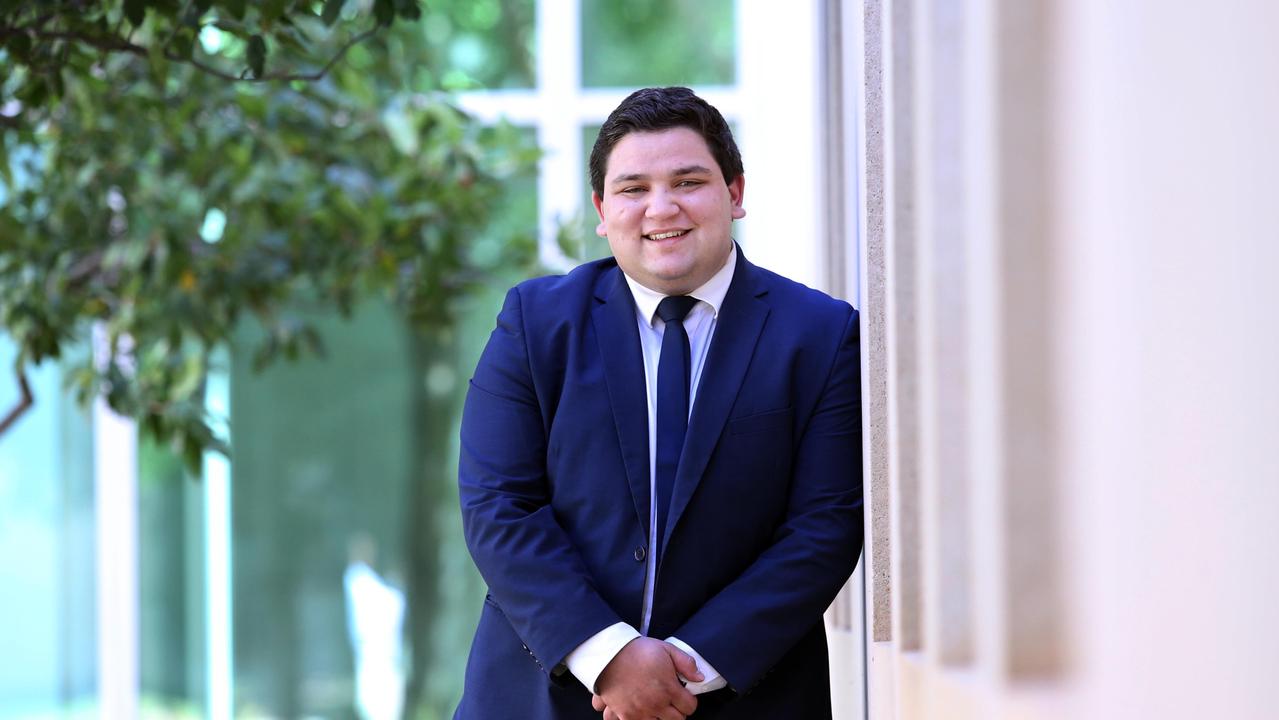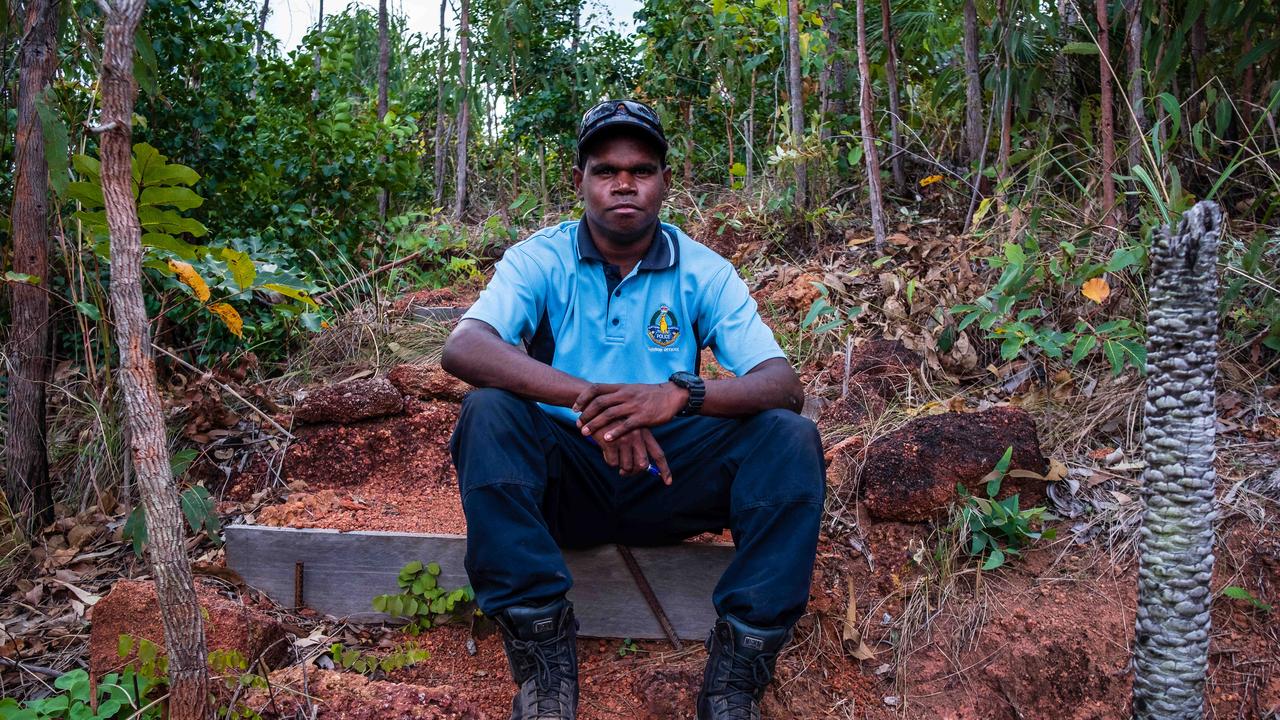Scholars need drive to seek a brighter future
MIRANDA Fisher's poignant and personal story in today's The Weekend Australian provides a powerful and insightful glimpse into what indigenous Australian teenagers can achieve, if only they are given the chance to realise their dreams and take their rightful place in the nation.
European colonisation was undoubtedly a significant cause of indigenous disadvantage in our country, but pointing the finger of blame is not productive.
We should avoid the traps of victimhood and seek positive solutions. We are not personally responsible for the past, but we must all take responsibility for the future.
It boils down to a simple question: are we going to accept this responsibility and actually do something about it, when so many before us have failed?
If we are to have any hope of addressing indigenous inequality and our common future, we need to have high expectations.
We need to make sure indigenous kids go to school and get a quality education, and make sure indigenous adults have real jobs in the real economy so they can own homes, provide for their families and ensure indigenous cultures are strong, vibrant and proud.
Miranda is one of the more than 400 students supported by an Australian Indigenous Education Foundation scholarship since 2008, and her experience shows us what happens when indigenous kids have opportunities and the confidence to aspire to a brighter future. AIEF provides scholarships to indigenous children to attend some of the nation's best schools and offers ongoing support to ensure its scholars complete Year 12 and move on to further studies or employment.
SPECIAL REPORT: Read more about the Australian Indigenous Education Foundation
Federal Department of Education statistics show that AIEF has the highest rate of retention and Year 12 completion of any program in Australia.
More than 90 per cent of secondary school students on AIEF scholarships stay at school and complete Year 12, and nearly 100 per cent of our Year 12 graduates make a successful transition into further study or employment.
Our results stand in contrast to the national figures, which report that only 50 per cent of indigenous children are finishing Year 12, only 72 per cent who have completed Year 12 are employed and nearly 60 per cent of indigenous Australians without a Year 12 certificate are unemployed.
AIEF's programs have been an unambiguous success in a field littered with expensive failures for decades. There are some people whose ideologies blind them to the reality of the suffering of so many indigenous children, regardless of what actually works.
Although increasingly rare, one criticism of our work is that "the best and brightest should remain within their communities". This view usually comes from people who do not understand how our program works or people who don't have the same expectations of someone else's indigenous kids as they do of their own, or people whose ideologies blind them to the practical realities.
AIEF does not set out to recruit "the best and brightest". Instead, AIEF awards scholarships to those who make the approach themselves and on the basis of the student's enthusiasm and determination to succeed - students like Miranda. Students with natural talent and academic ability who fail to apply themselves and work hard rarely succeed.
On the other hand, some of the most successful students in our program are those who have dragged themselves up, worked with dogged determination, slogged it out and are driven to succeed, regardless of their previous academic ability or the circumstances of their family or community life - kids like Miranda.
Enthusiasm is one of the most important contributors to student success, along with a support from parents and family and a positive attitude to education within the family and wider community.
Many of these families and communities live in dire circumstances, and this is what motivates them to want something more for their children. Put simply, when the student and their family aspire to something better, opportunities will result in success.
There is a fringe view that seeks to dictate that indigenous children with potential should remain in their communities, regardless of the circumstances. But you'll never hear them argue that their own children should be denied a good education because it's not going to "help their community".
One such community is Bowraville. In September The Australian reported that "Bowraville has been renowned in official statistics as the fourth most poverty-stricken town in NSW, where vandalism and alcohol and substance abuse are rife in the community".
One Greens politician who is ideologically opposed to the work of AIEF said to me: "If I had the choice of being at Joeys or Bowraville Central School, I'd prefer to be at Joeys."
When we hear Miranda, it highlights how ludicrous it is to suggest that people like her aren't going to "help their community".
"Without my scholarship, I could have become just another one of the lost and troubled teenagers I see every time I go back home. They have dreams, but they don't know how to pursue them, or they don't have people to support them, and they can't see the bigger life outside of home," she says.
The opportunity she was given drives her to help her community despite pleas from some there who beg her not to come back for her own good.
But Miranda is determined. "I will come back to Cherbourg because I'd be letting myself down if I gave up on my family and the members of my community," she says. "They are my treasure and I will always fight for them."
Many of the ideological people who criticise AIEF for enabling indigenous children and families to choose a high-quality boarding school education will, in the next breath, rage against "paternalistic policies" that tell indigenous people how to behave.
It is very easy for people to make broad-brush assumptions and statements about the outcomes of a boarding school education for indigenous children.
In my experience, these views are often fundamentally misinformed or misguided.
At AIEF, we simply open doors for children and families who want another option. We do not necessarily promote boarding schools and we do not think this is the answer for all indigenous children. But it is one answer that works - and as long as we are being inundated with inquiries from families, children and great schools, we are determined to make scholarships available.
I think indigenous politician Bess Price said it best when, responding to her well-educated opponents with successful careers, she said: "I just want for my kids what they have."
At AIEF we want 7000 more Mirandas because the future of our nation depends on it.
Andrew Penfold is a former solicitor and investment banker who established the Australian Indigenous Education Foundation and is the NSW Human Rights ambassador.


